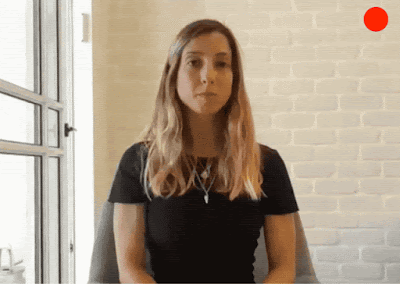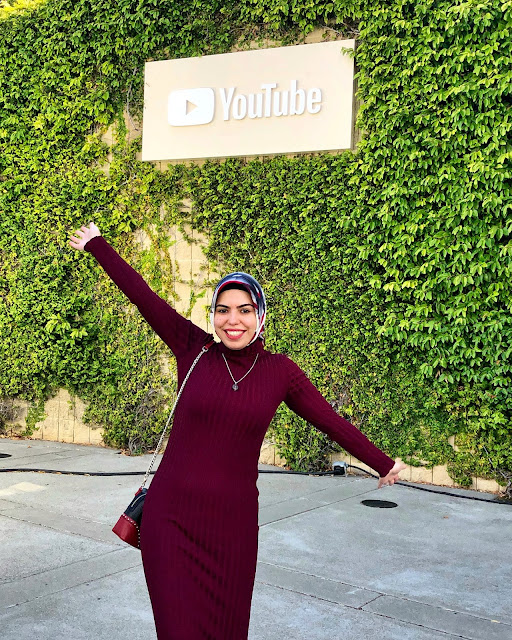Welcome to the latest edition of “My Path to Google,” where we talk to Googlers, interns and alumni about how they got to Google, what their roles are like and even some tips on how to prepare for interviews.
Today’s installment is a little different because we’ll be talking to two Googlers: Holly Slonaker, a Program Manager and member of the Deafglers community at Google, and Tricia Martines, the recruiter who worked with Holly throughout the interview process. They’ll share how Google is striving to support candidates with the accommodations they need during interviews.
Holly, what prompted you to apply for a job at Google?
Holly:This was my first time applying to Google. I had been at my previous company for nine years and was looking for new career growth opportunities. I applied on Google’s career website and didn’t know anyone at the company. I never really expected to hear back, as Google was such a pie-in-the-sky company to work for. I was surprised and delighted when Tricia reached out to me about the role!
What was that first conversation with Tricia, your recruiter, like?
Holly: I remember my heart beating out of my chest when I saw the first email from Tricia. I couldn’t believe Google was interested in me! I was initially worried about needing accommodations for the phone interviews, but Tricia quickly put me at ease and assured me that she’d make sure I had what I needed, which made me feel incredibly valued as a candidate. I could then focus on preparing for my interview answers rather than worrying about whether I would be able to hear the questions.
What accommodations were especially helpful during your interview process?
Holly: Being deaf, the job search process can present some unique barriers. From my first interaction with Tricia, I knew this experience was going to be different. She went above and beyond to make sure I had everything I needed to be as successful as a hearing candidate. We typed questions and responses live in a shared Google doc for the initial screening, and remote captioning was provided for all of my phone and in-person interviews. She even communicated the offer to me over the Google Hangouts chat app, so I was sure to capture all the details correctly and was still able to experience the excitement of a live offer.
Tricia, what resources did you use to help Holly prepare for her interview?
Tricia: We initially had conversations over a shared Google Doc to discuss the role and what to expect through the interview process. For the first interview, our Candidate Accomodations team was able to provide captioning services for Holly over a Google Hangout. The team was able to coordinate details for the onsite interview as well. Holly and I stayed in touch at each stage so I could answer questions and share with Holly what to expect along the way. We were so excited that Holly ultimately accepted the offer!
Holly, now that you’re a full-time Googler, how has Google continued to create an inclusive workplace for you?
Holly: The positive hiring experience has carried over for me as a Googler, with continued support from my managers, the Accommodations team and our employee-run Deafglers and Disability Alliance groups. A captioner joins all of my meetings, which is especially crucial in this new working-from-home normal we’re working in. All of our company-wide events are captioned; I don’t even have to request it, which is huge for me. I’ve even been asked to advise some of our research and engineering teams as they explore new accessible products for our Deaf and hard-of-hearing users.
Feeling so inspired by Google’s work in this space, I recently changed roles and am now Google’s Accessibility Education Program Manager on the Central Accessibility team. I'm helping to educate Googlers on how to design accessible products for our users.
A question for both of you: Do you have any tips you’d like to share with aspiring Googlers with disabilities?
Holly: My advice for others is to ask for what you need to be successful. Don’t be afraid to share your disability accommodation needs with recruiters. Companies like Google that value diversity will focus on what you bring to the table and will gladly provide disability accommodations to help remove barriers that prevent you from getting to that table in the first place.
Tricia: Google is a place that values diverse perspectives, and we want to hear from you. We have a Candidate Accommodations team in place to support you during the interview process and will facilitate the initial call with your recruiter to match your needs. If you need an accommodation, don't hesitate to let your recruiter or sourcer know. Your recruiter can engage the Candidate Accommodations team to support the initial phone call all the way through the onsite interviews.













